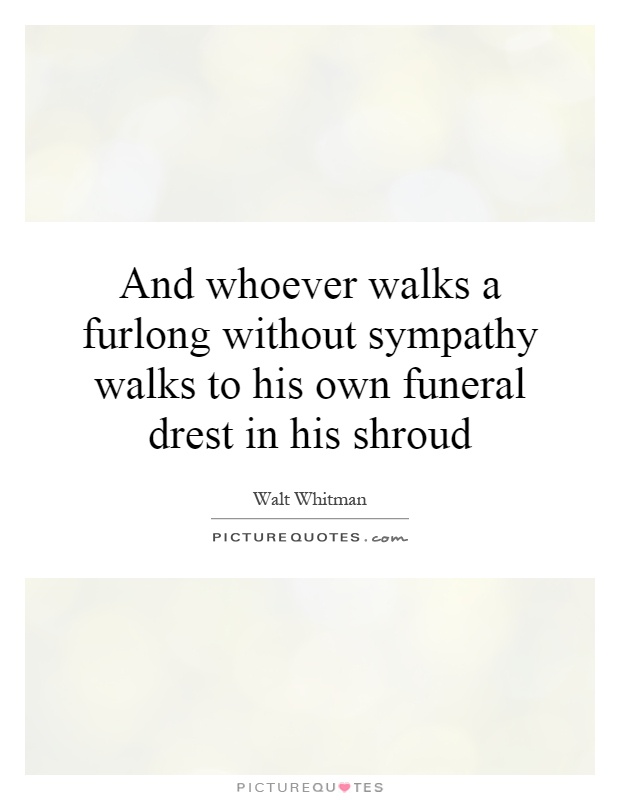And whoever walks a furlong without sympathy walks to his own funeral drest in his shroud

And whoever walks a furlong without sympathy walks to his own funeral drest in his shroud
Walt Whitman, one of America's most celebrated poets, was known for his profound and insightful observations on life, nature, and the human experience. In his poem "Song of Myself," Whitman explores the interconnectedness of all living beings and the importance of empathy and compassion in our interactions with others. One of the most striking lines from this poem is "And whoever walks a furlong without sympathy walks to his own funeral drest in his shroud."This powerful statement speaks to the idea that without empathy and compassion for others, we are essentially walking through life disconnected from the world around us. Whitman believed that true fulfillment and meaning in life could only be found through our connections with others and our ability to understand and share in their experiences. Without this empathy, we are essentially isolating ourselves and closing ourselves off from the richness and diversity of the human experience.
The image of walking to one's own funeral dressed in a shroud is a stark reminder of the consequences of living a life devoid of empathy. It suggests that without compassion for others, we are essentially dead to the world, moving through life in a state of spiritual death. Whitman believed that true life and vitality could only be found in our connections with others, in our ability to see ourselves reflected in the faces of those around us and to feel their joys and sorrows as our own.












 Friendship Quotes
Friendship Quotes Love Quotes
Love Quotes Life Quotes
Life Quotes Funny Quotes
Funny Quotes Motivational Quotes
Motivational Quotes Inspirational Quotes
Inspirational Quotes